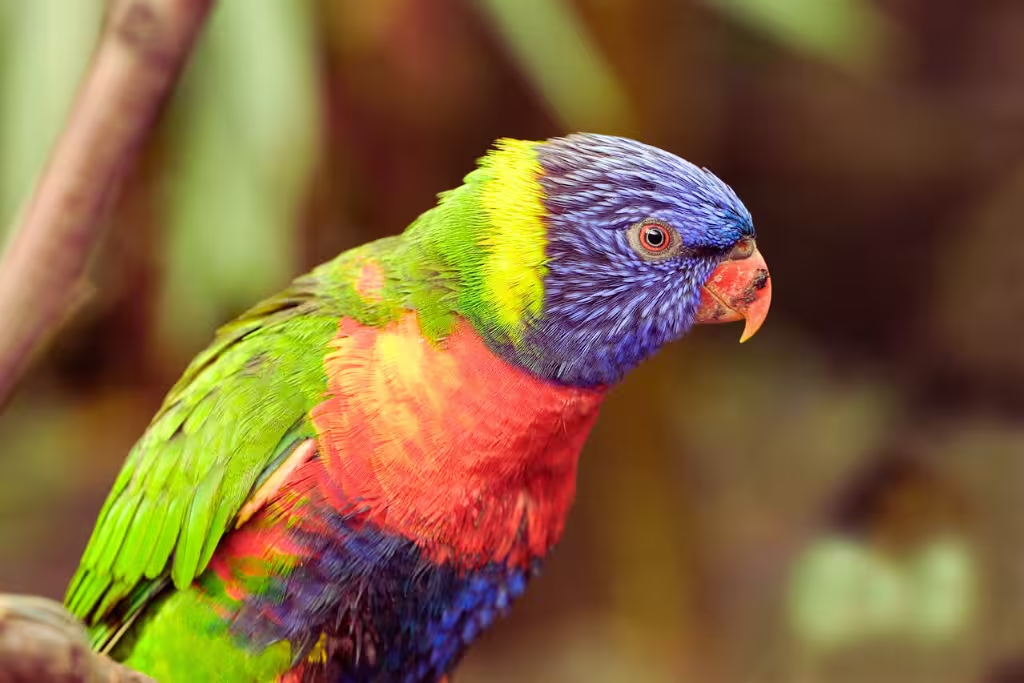Parrots: All about colorful birds and their care
How To Take Care of a Parrot for Beginners: Parrots are one of the most beautiful and intelligent birds in the world. These birds are found in grasslands, rainforests and even deserts. Their most distinctive feature is their colorful bright feathers and amazing ability to mimic human voices.
But parrots living in the wild are facing many threats – such as loss of their habitat, illegal trade and hunting.
Why is World Parrot Day celebrated?
World Parrot Day is celebrated every year on May 31 to make people aware of the importance of parrots and the threats they face. It aims to inspire people to protect parrots and make pet parrot keepers responsible.
If you want to take care of a pet parrot, then this article is very useful for you.
How to train and socialize a parrot?
Training a parrot and socializing it with humans is a patient and constant effort. But if you approach it correctly, this experience can be extremely enjoyable and satisfying.
1. Spend time every day
Talk, play and give your parrot food and drink every day. By doing this, the parrot will start to recognize you and gradually start trusting you.
2. Create a routine
Parrots like a set routine. So fix a time for eating, playing, training and sleeping every day.
3. Positive reinforcement
Whenever your parrot behaves well or learns a trick, praise it or give it a treat. This will make it feel connected to you.
4. Teach basic commands
Start teaching commands like “step up” and “step down”. Treats can also help.
5. Practice daily
Training and playing for a short time every day will improve the parrot’s behavior and prevent it from adopting bad habits.
6. Toys and activities
It is important to keep the parrot mentally and physically active. Provide him with a variety of toys and activities.
7. Seek professional help
If you feel that you are not able to train your parrot properly, seek help from an animal behaviorist.
How to Prepare a Home for a Pet Parrot?
If you are preparing a home for a pet parrot, keep these things in mind:
- The cage should be large and sturdy so that he can spread his wings comfortably.
- The cage should have a variety of perches – wood, rope or branches.
- Provide fresh food and clean water daily.
- Place the cage in a quiet place, away from a window or kitchen.
- Clean the cage and toys regularly.
- Keep the temperature stable between 65 and 80 degrees Fahrenheit.
What can and cannot parrots eat?
A balanced diet is essential for a parrot to stay healthy. The ideal diet includes:
Can eat:
- Pellets (60%-70%)
- Fresh fruits and vegetables (20%-30%) – like carrots, apples, bananas, mangoes
- Small amounts of seeds and nuts (10%) – like almonds, walnuts
- Cooked grains – brown rice, pasta
- Boiled chicken or fish (small amounts)
Can’t eat:
- Avocado, chocolate, caffeine
- Salt, sugar and fried foods
- Fruit seeds – like apples, cherries
- Raw meat and preserved foods
Always provide clean and fresh water. Avoid mineral or distilled water as they do not contain essential minerals.
How to keep your parrot healthy?
- Provide a balanced diet
- Interact and spend time with it
- Make time for mental and physical activities
- Clean the cage and toys regularly
- Get regular checkups from a vet
- Keep away from toxins
Petcube Cam Makes Parrot Care Easy
If you live away from home, the Petcube Cam can help you. It has:
- 1080p HD camera and 8x digital zoom
- Night vision so you can see even at night
- 24/7 online vet service – get in touch with experts any time
Frequently Asked Questions (FAQ)
Why do parrots mimic humans?
To communicate with humans, get attention, and for social bonding.
What kind of sounds do parrots make?
Twittering, whistling, squeaking, and imitating speaking.
Why do parrots shake their heads?
Curiosity, to focus or to play.
Do parrots understand language?
They can associate words with events or objects, but do not understand the full language.
What to do if a parrot bites?
Understand the reason, do not punish, use positive reinforcement and socialize slowly.
What is the lifespan of a parrot?
Macaque: 50-80 years
African Grey: 40-60 years
Amazon: 40-70 years
Cockatiel: 15-20 years
Budgerigar (Parakeet): 5-10 years

Surendra Bareth is a versatile actor and assistant director with a Bachelor’s degree from Guru Ghasidas University. He has made remarkable contributions to Hindi and Chhattisgarhi cinema, as well as television, excelling in both acting and direction.
Contact Information:

